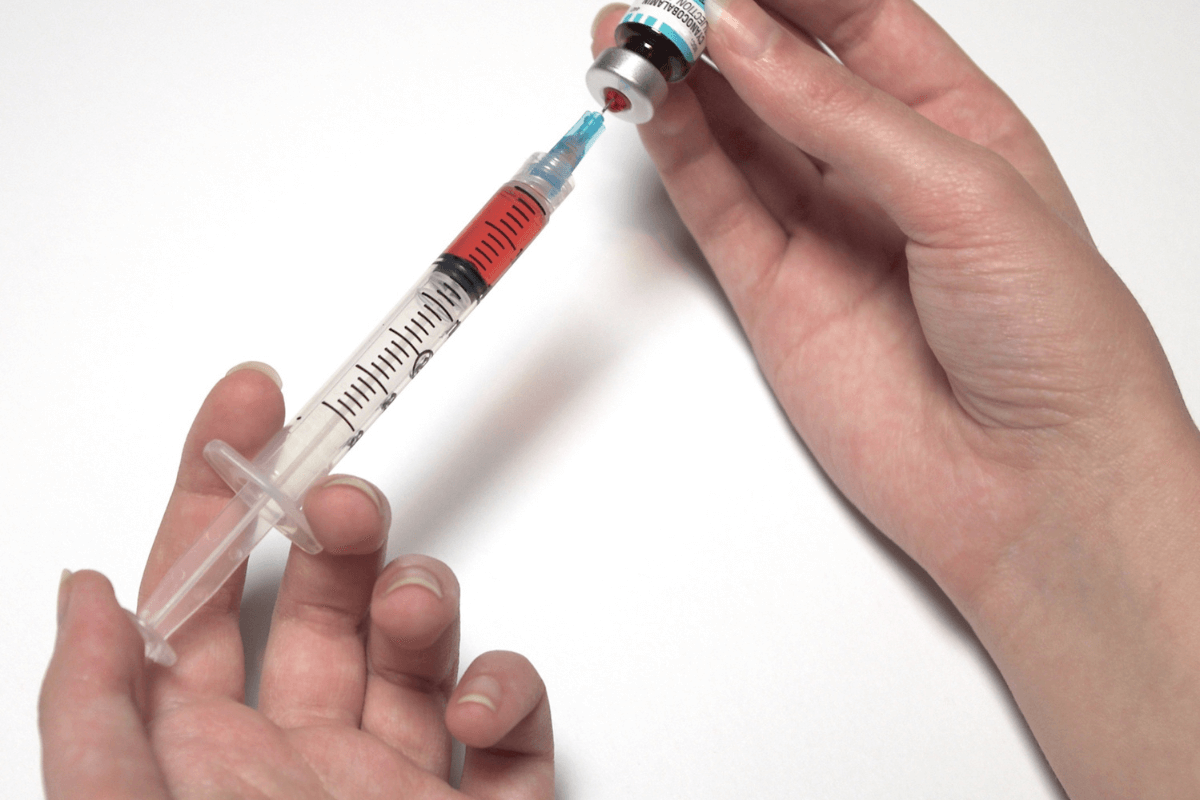Originally used to treat diabetes, Ozempic has also become a popular weight-loss medication. This drug can clearly have a dramatic effect on a person’s body, but can it also affect their mind? For example, can Ozempic cause depression?
Learn more about our Atlanta mental health programs or call us now at 866-859-3442.
What Is Ozempic?
Ozempic is the brand name of a prescription medication that contains semaglutide. It was initially approved by the U.S. Food and Drug Administration (FDA) in 2017 as a treatment for Type 2 diabetes, but it is also used on an off-label basis to help people lose weight.
A similar drug, Wegovy (which also contains semaglutide) earned FDA approval in 2021 as a weight loss medication.
People who take Ozempic usually self-administer the drug via weekly subcutaneous injections.
How It Works
When a person takes Ozempic, the drug interacts with receptors for a naturally occurring hormone called glucagon-like peptide-1 (GLP-1).
GLP-1 regulates blood glucose (sugar) levels by prompting the pancreas to release insulin. It also influences appetite and the speed with which food is digested. If GLP-1 does not function as it should, Ozempic can be an effective substitute.
Ozempic’s ability to boost insulin production makes it a valuable medication to people who have diabetes. Its impact on appetite and digestion also make it an attractive option for people who need help managing their weight.
Side Effects
As with virtually every prescription medication, Ozempic can cause a range of side effects. The more common of these effects include:
- Headache
- Nausea
- Stomach pain
- Diarrhea
- Constipation
- Acid reflux
- Decreased appetite
More serious, but less common, adverse effects of Ozempic include:
- Vision problems
- Kidney damage
- Pancreatitis
- Gallstones
- Paralysis of the stomach
Can Ozempic Cause Depression?
The side effects in the previous section are all physical in nature. However, there have been reports that Ozempic may also cause certain psychological complications, which brings us to the question posed in the headline of today’s post: Can Ozempic cause depression?
Researchers have not definitively answered this question. For example:
- According to an October 2024 study in the journal Scientific Reports, GLP-1 receptor agonists (a category that includes semaglutide, which is the primary active ingredient in Ozempic) are associated with “elevated risk of psychiatric consequences … particularly in the domains of depression, anxiety, and suicidal outcomes.”
- A June 2024 report in the journal Innovations in Clinical Neuroscience reported that additional data is required to ascertain semaglutide’s effect on mood. The authors of this study did note “potential negative mood changes associated with semaglutide in patients with Type 2 diabetes and a history of depression.”
- In September 2024, a research team from the Perelman School of Medicine at the University of Pennsylvania determined that semaglutide “did not increase the risk of depressive symptoms, suicidal thoughts, or suicidal behavior in persons without known major mental health disorders.”
Though questions remain about Ozempic’s ability to cause depression, these studies suggest that the drug may exacerbate symptoms in patients who have already been living with certain mental health concerns.
What Are the Signs of Depression?
The fifth edition of the Diagnostic and Statistical Manual of Mental Disorders (DSM-5), which is the standard reference book for mental health professionals in the U.S., includes entries for several depressive disorders, including:
- Major depressive disorder (MDD)
- Persistent depressive disorder
- Premenstrual dysphoric disorder
- Substance/medication-induced depressive disorder
The primary differences among these disorders are related to when symptoms begin to occur, how severe they become, and how long they last.
Someone who has a depressive disorder may exhibit signs such as:
- Deep sadness
- Mood swings and irritability
- Appetite changes and resultant unintentional weight gain or loss
- Abnormal sleep patterns (either insomnia or hypersomnia)
- Diminished energy and persistent fatigue
- Low self-esteem
- Difficulty focusing, concentrating, and making decisions
- Loss of interest in significant activities
- General sense of hopelessness and/or helplessness
- Thoughts of death, self-harm, and/or suicide
If you have been experiencing symptoms like these after taking Ozempic, you should consult with the physician who prescribed the medication to you. They can conduct a thorough assessment and recommend appropriate action, which may include therapy and other services.
How Is Depression Treated?
Untreated depression can have a devastating impact on virtually every part of your life. It can be harmful to your physical health, undermine the quality of your relationships, and prevent you from performing to your potential in school and at work.
But when you get the right type of treatment, you can avoid these outcomes and begin to heal from and damage you have already incurred. The key is determining what the right type of treatment looks like for you.
Depression treatment can occur in many different environments and involve a variety of therapies, medications, and support services. What works for one person may be ineffective for another, so it’s important to find a provider that will take the time to conduct a thorough assessment, then develop a customized program to address your unique needs.
Depending on your specific circumstances, treatment for depression may include:
- Prescription medication
- Individual, group, and family therapy
- Cognitive behavioral therapy (CBT)
- Dialectical behavior therapy (DBT)
- Trauma-focused therapies
- Art therapy
- Yoga, meditation, and other holistic therapies
Your provider should also help you develop an aftercare plan to ensure that you have the support you need to maintain and build on the progress you make while you in treatment
Learn More About Treatment for Depression in Atlanta
If you have been struggling with depression due to a prescription medication or any other cause, Valor Behavioral Health is here for you.
Our outpatient mental health treatment center in Atlanta, GA, offers customized, age-appropriate programming for adults and adolescents. We work closely with each patient to identify the full scope of their needs, help them set achievable short- and long-term goals, and develop the personalized plan that will put them on the path to a much healthier and more satisfying future.
To learn more about how we can help you or a loved one, or to schedule a free assessment, please visit our Admissions page or call our center today.















